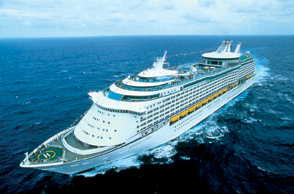Other Safety Topics
The safety of life at sea has been a matter of concern to IMO since its inception, and in this time many regulations and conventions have been adopted to improve operational safety conditions.
One way of ensuring that action is taken before a disaster occurs is the use a process known as formal safety assessment.
This has been described as "a rational and systematic process for assessing the risks associated with shipping activity and for evaluating the costs and benefits of IMO's options for reducing these risks."
 Passenger ships - usually defined as a ship carrying more than 12 passengers - on international voyages must comply with all relevant IMO regulations, including those in the SOLAS and Load Lines Conventions.
Passenger ships - usually defined as a ship carrying more than 12 passengers - on international voyages must comply with all relevant IMO regulations, including those in the SOLAS and Load Lines Conventions.
Passenger ships in operation today are subject to a vast array of regulations and standards covering every aspect of ship construction and operation. A number of incidents over the years have led to improvements in safety requirements, including those relating to fire safety measures - such as escape routes and fire protections systems for the large atrium typical of cruise ships - and life-saving appliances and arrangements.
Regulations governing the carriage of chemicals by ship are contained in the International Convention for the Safety of Life at Sea (SOLAS) and the International Convention for the Prevention of Marine Pollution from Ships, as modified by the Protocol of 1978 relating thereto (MARPOL 73/78).
The regulations cover chemicals carried in bulk, on chemical tankers, and chemicals carried in packaged form.
Pilots with local knowledge have been employed on board ships for centuries to guide vessels into or out of port safely - or wherever navigation may be considered hazardous, particularly when a shipmaster is unfamiliar with the area.
In addition to local knowledge and expertise, pilots are able to provide effective communication with the shore and with tugs, often in the local language.
Qualified pilots are usually employed by the local port or maritime administration and provide their services to ships for a fee, calculated in relation to the ship's tonnage, draught or other criteria.